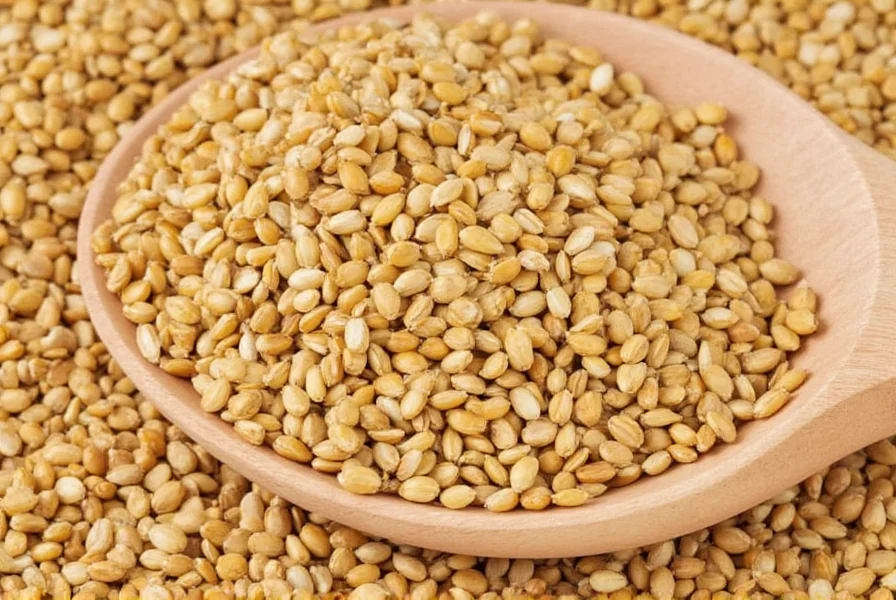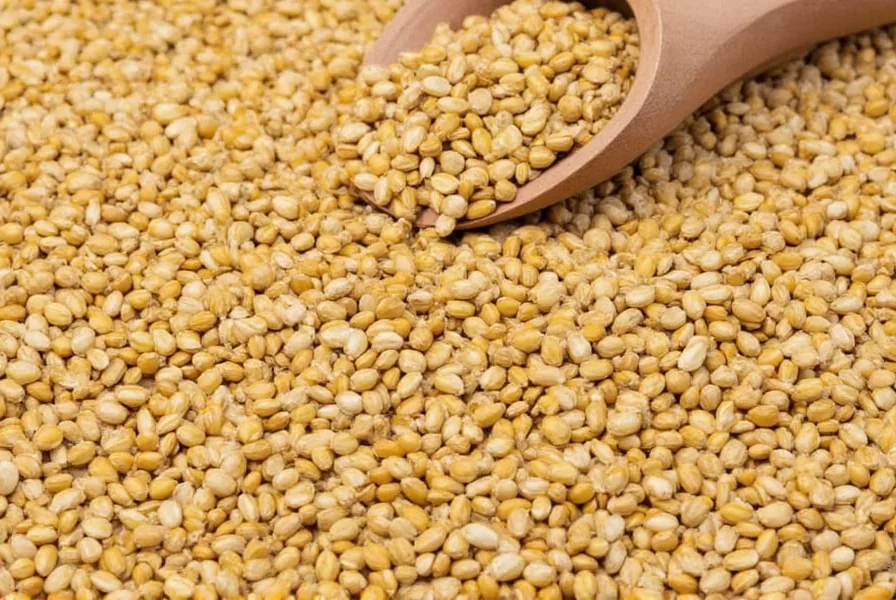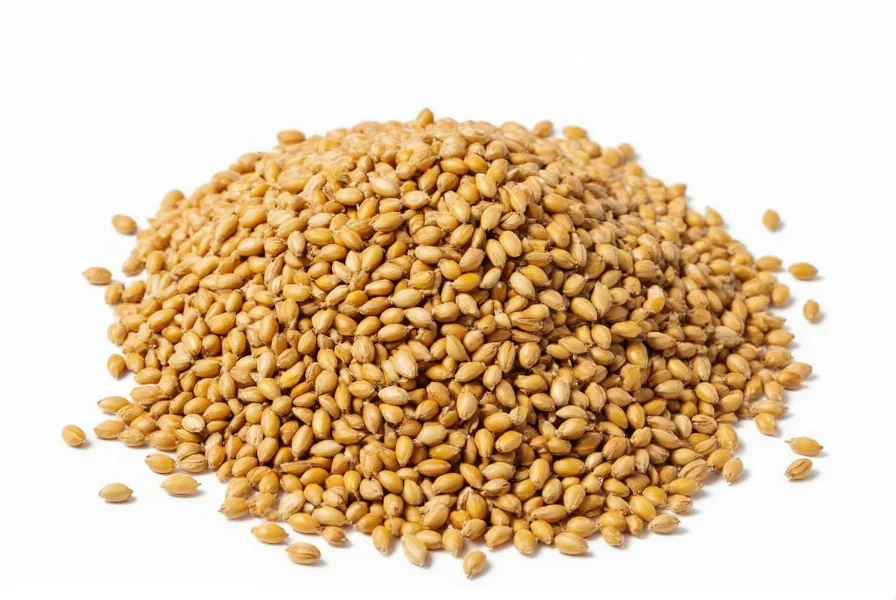Fenugreek (Trigonella foenum-graecum) has been used for centuries in traditional medicine systems across Asia and the Mediterranean. Modern research continues to validate many of these traditional uses, revealing the impressive science behind this humble seed's health-promoting properties. This comprehensive guide examines the evidence-based benefits of fenugreek seeds, separating established facts from anecdotal claims.
Understanding Fenugreek Seeds and Their Composition
Fenugreek seeds come from a plant in the legume family, recognizable by their distinctive maple-like aroma when toasted. Each tiny seed packs a nutritional punch, containing soluble fiber (particularly galactomannan), saponins, alkaloids like trigonelline, and the amino acid 4-hydroxyisoleucine. These compounds work synergistically to produce the scientific benefits of fenugreek seeds for diabetes management and other health effects.

Evidence-Based Health Benefits of Fenugreek Seeds
Blood Sugar Regulation and Diabetes Management
Multiple clinical studies demonstrate fenugreek seeds' effectiveness in managing type 2 diabetes. A comprehensive review published in Nutrition Journal found that fenugreek supplementation significantly reduced fasting blood glucose and HbA1c levels. The fenugreek seeds for blood sugar control effect appears to work through several mechanisms:
| Mechanism | How It Works | Research Support |
|---|---|---|
| Delayed carbohydrate absorption | Galactomannan fiber slows digestion | Multiple human trials |
| Improved insulin sensitivity | 4-hydroxyisoleucine stimulates insulin secretion | Animal and human studies |
| Reduced insulin resistance | Modulation of glucose metabolism pathways | Clinical research |
For those exploring natural approaches to diabetes management, incorporating 2-5 grams of powdered fenugreek seeds daily shows promising results, though consultation with a healthcare provider is essential before making therapeutic use.
Support for Lactation and Breast Milk Production
One of the most well-documented benefits is fenugreek's ability to enhance milk production in breastfeeding mothers. Research published in the Journal of Alternative and Complementary Medicine found that mothers taking fenugreek supplements produced significantly more breast milk than the control group within 24-72 hours. This makes fenugreek seeds for lactation support one of the most evidence-backed traditional uses.
The mechanism appears related to diosgenin, a compound in fenugreek that has estrogen-like properties, potentially stimulating milk-producing glands. Most lactation consultants recommend 2-3 capsules (580-610 mg each) three times daily, with effects typically noticeable within 24-72 hours.
Cholesterol and Heart Health Benefits
Studies indicate fenugreek seeds can positively impact lipid profiles. Research in the European Journal of Clinical Nutrition demonstrated that daily consumption of fenugreek fiber significantly reduced LDL ("bad") cholesterol while increasing HDL ("good") cholesterol. The how fenugreek seeds lower cholesterol effect seems to work through:
- Bile acid binding properties that increase cholesterol excretion
- Reduction of cholesterol absorption in the intestines
- Modulation of liver enzymes involved in cholesterol synthesis
For cardiovascular benefits, consuming 18-25 grams of defatted fenugreek seed powder daily appears most effective based on clinical research.
Testosterone and Libido Enhancement
Emerging research suggests fenugreek may support healthy testosterone levels and sexual function in men. A double-blind study in Phytotherapy Research found that men taking fenugreek extract showed significant improvements in libido, energy, and sexual performance compared to placebo. The fenugreek seeds testosterone research studies indicate potential mechanisms including:
- Inhibition of enzymes that convert testosterone to estrogen
- Stimulation of luteinizing hormone production
- Antioxidant protection of testicular tissue
While promising, more large-scale human trials are needed to confirm these effects across diverse populations.
Nutritional Profile of Fenugreek Seeds
Beyond their therapeutic compounds, fenugreek seeds offer impressive nutritional value. Per 100 grams, they contain:
- Protein: 23g
- Dietary fiber: 25g
- Iron: 33.5mg (186% of daily value)
- Magnesium: 191mg (48% of daily value)
- Manganese: 1.23mg (54% of daily value)
- Vitamin B6: 0.6mg (35% of daily value)
This robust fenugreek seed nutritional value per 100g makes them a valuable addition to any diet, though most people consume them in smaller therapeutic doses.
How to Use Fenugreek Seeds for Maximum Benefit
The best way to consume fenugreek seeds for health benefits depends on your specific goals:
- For diabetes management: Soak 1-2 tablespoons of seeds overnight and consume the water and softened seeds on an empty stomach in the morning
- For lactation support: Take standardized supplements providing 580-610 mg three times daily
- As a culinary ingredient: Toast and grind seeds to use as a spice in curries, breads, and marinades
- As tea: Steep 1 teaspoon of seeds in hot water for 10 minutes

Safety, Side Effects, and Precautions
While culinary use of fenugreek is generally safe, therapeutic doses may cause:
- Maple syrup-like body odor (harmless but noticeable)
- Digestive upset in sensitive individuals
- Potential hypoglycemia when combined with diabetes medications
- Allergic reactions in people sensitive to legumes
Special precautions apply for:
- Pregnant women (may stimulate uterine contractions)
- Individuals with peanut or chickpea allergies
- Those scheduled for surgery (may affect blood sugar control)
Always discuss therapeutic use of fenugreek with your healthcare provider, especially if you have medical conditions or take medications. The potential side effects of consuming fenugreek seeds are generally mild at culinary doses but require monitoring at therapeutic levels.
Conclusion: Integrating Fenugreek Seeds Wisely
Fenugreek seeds represent a remarkable example of traditional wisdom meeting modern science. Their documented benefits for blood sugar regulation, lactation support, and cholesterol management make them valuable additions to evidence-based wellness approaches. However, like any bioactive compound, they work best as part of a comprehensive health strategy rather than as standalone miracle cures.
When incorporating fenugreek into your routine, start with small amounts to assess tolerance, prioritize quality sources, and maintain realistic expectations based on current research. Remember that while fenugreek offers impressive benefits, it complements rather than replaces conventional medical care for serious health conditions.
Frequently Asked Questions
How quickly do fenugreek seeds work for increasing breast milk production?
Most breastfeeding mothers notice increased milk production within 24-72 hours of starting fenugreek supplementation at recommended doses (typically 2-3 capsules of 580-610mg three times daily). However, individual responses vary, and some women may require up to 2 weeks to see noticeable effects.
What's the recommended daily dosage of fenugreek seeds for diabetes management?
Clinical studies on fenugreek for blood sugar control typically use 2-5 grams of powdered fenugreek seeds daily. This can be consumed as soaked seeds (1-2 tablespoons overnight) or in capsule form. Always consult with your healthcare provider before using fenugreek therapeutically, especially if you're taking diabetes medications.
Can fenugreek seeds cause digestive issues?
Yes, some people experience mild digestive side effects from fenugreek seeds, particularly when first introducing them or at higher doses. Common issues include diarrhea, gas, and bloating due to the high fiber content. Starting with small amounts and gradually increasing can help minimize these effects. Drinking plenty of water when consuming fenugreek also aids digestion.
Are there any medication interactions I should be aware of with fenugreek?
Fenugreek may interact with several medications, most notably blood thinners (like warfarin) and diabetes medications. Its blood sugar-lowering effects can amplify the effects of diabetes drugs, potentially causing hypoglycemia. Fenugreek's potential antiplatelet effects may increase bleeding risk when combined with blood thinners. Always consult your healthcare provider before using fenugreek if you take any prescription medications.
How should I store fenugreek seeds to maintain their potency?
To preserve fenugreek seeds' potency and prevent rancidity, store them in an airtight container away from light and heat. Whole seeds maintain their properties longer than ground fenugreek - typically 1-2 years when stored properly in a cool, dark place. Ground fenugreek should be used within 6 months for maximum benefit. Refrigeration can extend shelf life but ensure the container is completely sealed to prevent moisture absorption.











 浙公网安备
33010002000092号
浙公网安备
33010002000092号 浙B2-20120091-4
浙B2-20120091-4